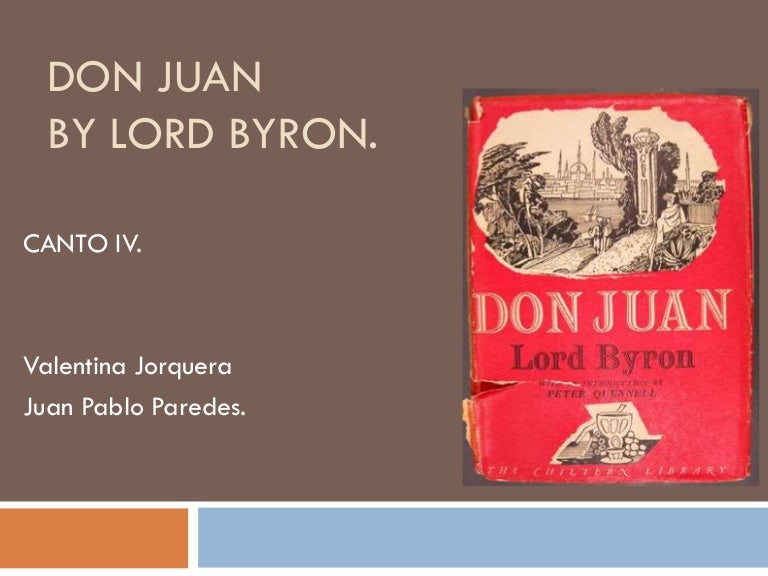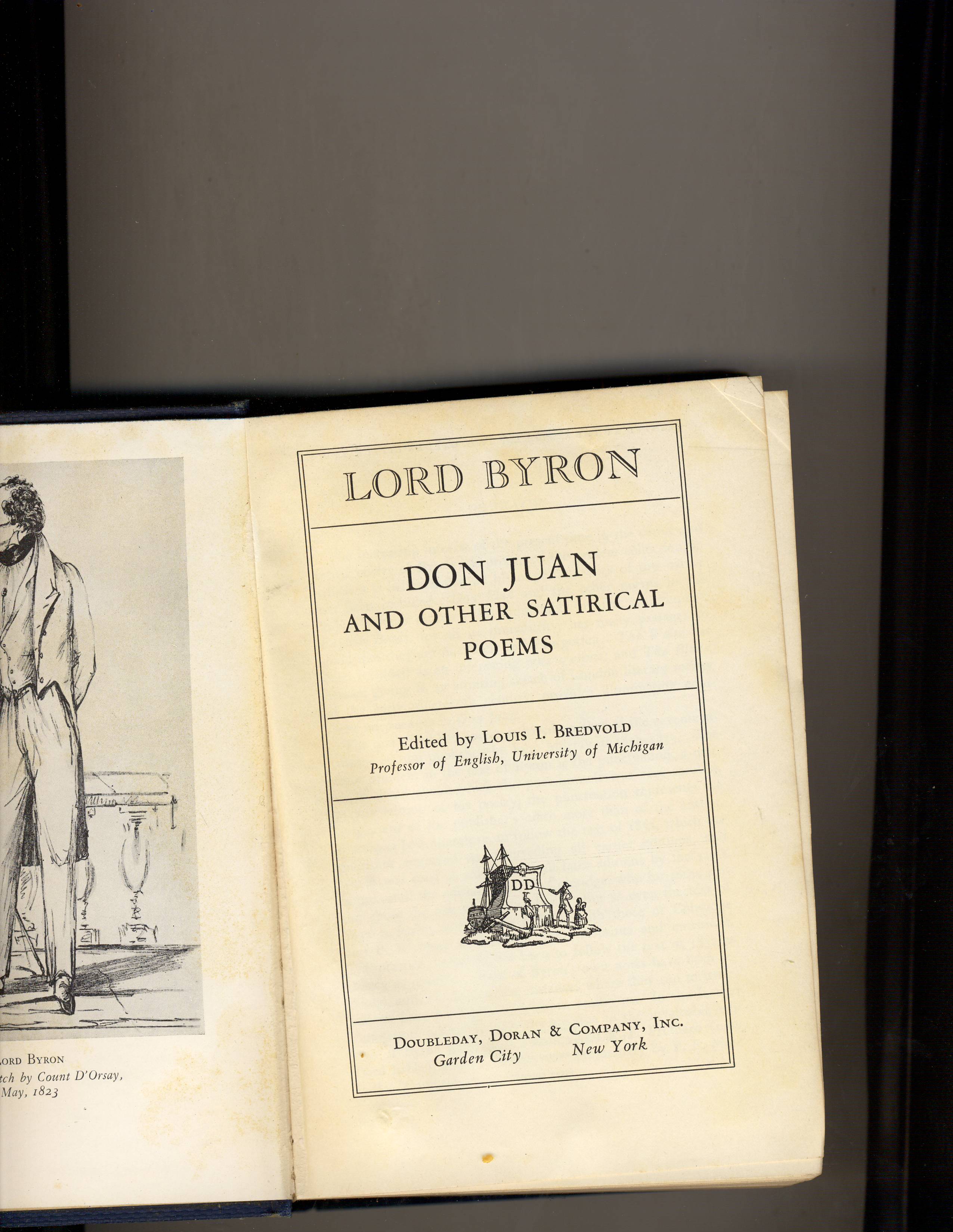


He died from a fever contracted while in Messolonghi in Greece. Explore the summary, quotes, and analysis of Don Juan, learn the history and inspiration behind this poem, and discover the. Hail, Muse et cetera.

He later travelled to fight against the Ottoman Empire in the Greek War of Independence, for which Greeks revere him as a national hero. Lord Byron wrote the epic satirical poem called Don Juan. Byron served as a regional leader of Italy's revolutionary organization, the Carbonari, in its struggle against Austria. He was notably described by Lady Caroline Lamb as "mad, bad, and dangerous to know". Don Juan Lord Byron - Don Juan is a satiric poem by Lord Byron, based on the legend of Don Juan, which Byron reverses, portraying Juan not as a womanizer but as someone. He is regarded as one of the greatest British poets and remains widely read and influential, both in the English-speaking world and beyond.īyron's notabilty rests not only on his writings but also on his life, which featured upper-class living, numerous love affairs, debts, and separation. Amongst Byron's best-known works are the brief poems She Walks in Beauty, When We Two Parted, and So, we'll go no more a roving, in addition to the narrative poems Childe Harold's Pilgrimage and Don Juan. In a reversal of traditional interpretations, the poet depicts Juan not as a rake and libertine but, rather, as a young innocent who, after being seduced by a married lady, embarks on a series of colourful adventures. The first two cantos of Don Juan were begun in 1818 and published in. Synopsis In this satiric poem, based on the legend of Don Juan, Byron reverses the story, portraying Juan not as a womaniser but as someone easily seduced by women. Lord Byron’s (1788-1824) entertaining mock-epic version of the famous Don Juan legend (1819-24) proved highly controversial. George Gordon Byron (invariably known as Lord Byron), later Noel, 6th Baron Byron of Rochdale FRS was a British poet and a leading figure in Romanticism. would write his greatest poem, Don Juan, a satire in the form of a picaresque verse tale.


 0 kommentar(er)
0 kommentar(er)
